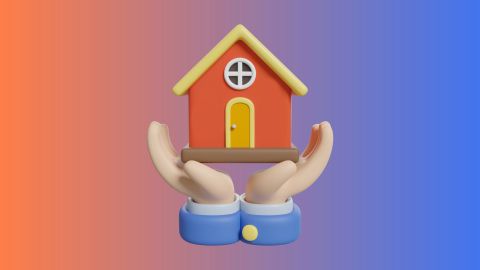A mortgage lender is a financial institution or individual that provides funds to borrowers for the purpose of purchasing real estate. The borrower, often a home buyer, receives a loan from the mortgage lender, and in return, the lender secures the loan with a lien on the property being financed. This means that if the borrower fails to repay the loan as agreed, the lender has the legal right to take possession of the property through foreclosure to recover the outstanding loan amount.
Mortgage lenders play a crucial role in the home financing process by assessing the creditworthiness of borrowers, determining loan terms, and facilitating the origination and servicing of mortgage loans. They offer various types of mortgages, each with its own interest rates, repayment structures, and terms. Borrowers can choose from a range of lenders, including traditional banks, credit unions, mortgage brokers, and private individuals, each catering to different financial needs and preferences.
Mortgage lenders provide funding for real estate purchases, but why stop there? Unlock the hidden value of your property with a loan against property. Use the funds for business expansion, education, medical expenses, or debt consolidation—all while retaining ownership. This flexible financial solution by Bajaj Finance offers competitive interest rates and allows you to turn your home equity into a powerful asset. Get loan of up to Rs. 10.50 crore against your property within 72 hours* of the approval.
Key points about mortgage lenders
- Financial intermediaries:
Mortgage lenders act as financial intermediaries, facilitating the borrowing and lending processes involved in real estate transactions. - Risk assessment:
Lenders evaluate the creditworthiness of borrowers by examining credit scores, financial history, and other relevant factors to assess the risk associated with extending a mortgage loan. - Loan origination:
Mortgage lenders are responsible for originating loans, which involve processing applications, verifying documentation, and determining the terms and conditions of the mortgage. - Secured loans:
Mortgage loans are secured by the property being financed. In the event of default, the lender may seize the property through foreclosure to recover the outstanding loan amount. - Interest rates and terms:
Lenders establish the interest rates and terms of the mortgage, impacting the overall cost of borrowing and the repayment structure for the borrower.
How to find best mortgage lenders?
To find the best mortgage lenders, start by comparing interest rates and loan terms from multiple lenders, including banks, credit unions, and online mortgage companies. Consider customer reviews and ratings to gauge lender reputation and service quality. Look for lenders who offer a variety of loan products to meet your specific needs, such as fixed-rate, adjustable-rate, or government-backed loans. Additionally, assess the fees associated with each lender, such as origination and closing costs. Finally, check if the lender provides clear communication and guidance throughout the application process, ensuring a smooth borrowing experience.
If you already own a property, refinancing is not your only solution for financial needs. A loan against property is a better choice, offering higher loan amounts and lower interest rates. With the flexibility to fund education, weddings, or even emergencies, this option allows you to unlock your property’s potential while retaining full ownership and long-term value. Get a loan of up to Rs. 10.50 crore with the option of interest-only EMIs during the initial tenure.
Types of mortgage lenders
Understanding the various types of mortgage lenders is crucial for borrowers seeking the most suitable financing option. Here are the main types:
- Retail lenders:
These are traditional brick-and-mortar banks and credit unions that directly offer mortgage loans to consumers. Retail lenders provide a range of loan products and are accessible through their physical branches. - Direct lenders:
Direct lenders operate solely in the mortgage lending space and work directly with borrowers. They often streamline the loan application process, providing a direct point of contact throughout the transaction. - Portfolio lenders:
Portfolio lenders use their own funds to originate and hold mortgage loans in their portfolio. This provides them with greater flexibility in terms and lending criteria compared to lenders who sell loans on the secondary market. - Wholesale lenders:
Wholesale lenders do not interact directly with borrowers. Instead, they work through mortgage brokers who act as intermediaries between the borrower and the wholesale lender. This model allows for a wider range of loan options. - Correspondent lenders:
Correspondent lenders fund mortgage loans using their own capital but may sell the loans to larger financial institutions or investors after origination. They retain the right to service the loans. - Warehouse lenders:
Warehouse lenders provide short-term funding to mortgage originators, enabling them to fund loans before selling them on the secondary market. This type of lender facilitates liquidity in the mortgage market. - Hard money lenders:
Hard money lenders are typically private individuals or small firms that provide short-term, high-interest loans, often used in real estate investment scenarios. These loans are asset-based and carry a higher level of risk.
Advantages and disadvantages of mortgage lender
Advantages of a mortgage lender |
Disadvantages of a mortgage lender |
Expertise and guidance: Mortgage lenders provide valuable knowledge throughout the loan process, helping borrowers make informed decisions. |
Strict qualification requirements: Lenders often have strict credit score, income, and debt-to-income ratio standards, making it harder for some borrowers to qualify. |
Variety of loan products: Lenders offer a wide range of loan types (fixed-rate, adjustable-rate, government-backed), allowing borrowers to choose the best option. |
Higher fees: Some lenders charge higher fees, such as origination fees or closing costs, which increase the total cost of the mortgage. |
Convenience: Mortgage lenders handle much of the paperwork and processing, streamlining the borrowing process for the borrower. |
Limited flexibility: Lenders may not offer flexible terms or be willing to make adjustments in case of financial hardship during the loan term. |
Potential for better rates: Established lenders may offer competitive interest rates or special discounts for borrowers with strong credit. |
Lengthy approval process: The loan approval process can be slow, involving extensive documentation and underwriting, which may delay the purchase of a home. |
Understanding the distinctions among these types of mortgage lenders allows borrowers to choose the option that aligns with their financial needs, preferences, and specific circumstances. Whether opting for the convenience of a retail lender or exploring the specialised services of a hard-money lender, the mortgage lender landscape offers diverse avenues for securing home financing.
Pro tip: Mortgages are a great start, but what if you could use your property to achieve more? A loan against property offers a practical way to secure significant funding for personal or professional goals. Unlike traditional loans, it leverages your property equity, offering larger amounts, competitive interest rates, and flexible repayment terms, empowering you to meet your financial aspirations. With Bajaj Finserv Loan Against Property, you can enjoy lower EMIs starting from Rs. 750/lakh* and longer repayment tenures.




